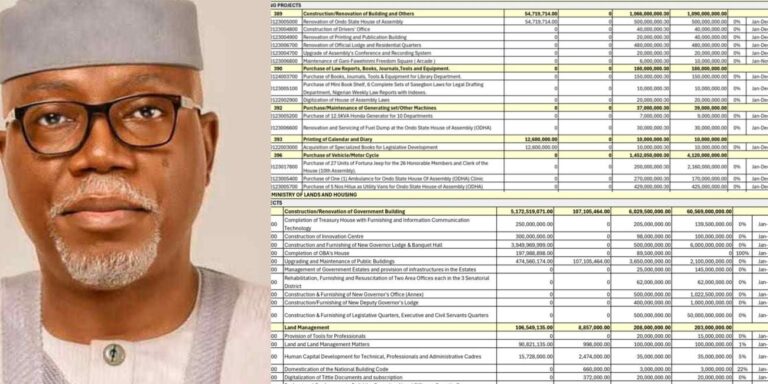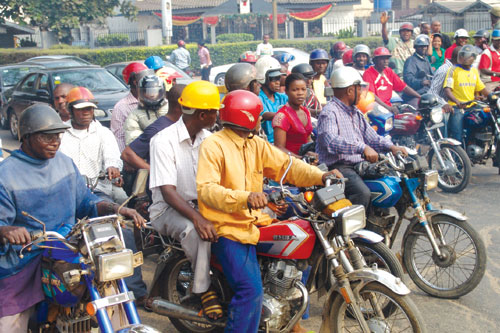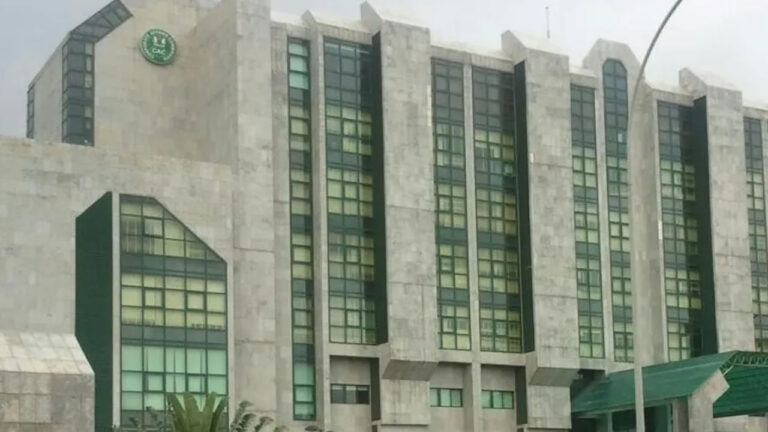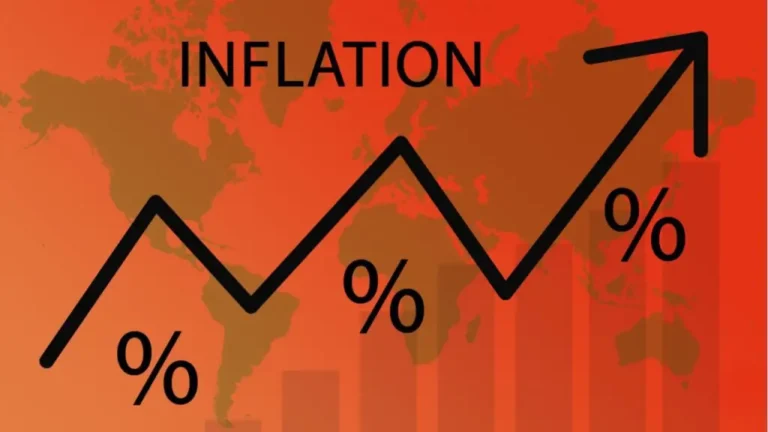
There is outrage in Ondo State over Governor Lucky Aiyedatiwa’s plan to spend N6 billion on the construction and furnishing of a new Governor’s Lodge in the 2025 budget.
Aiyedatiwa also earmarked over N3 billion to buy vehicles for members of the state House of Assembly in the budget.
Thefrontrank reports that Aiyedatiwa had last week signed the appropriation bill of N698.7 billion into law.
The N698.7 billion budget was increased by N43,429,496,000 beyond its initially proposed by the governor when he presented the 2025 to the House of Assembly.
The budget allocates N433 billion (62.06%) to capital expenditure and N265 billion (37.94%) to recurrent expenditure.
Details of the budget showed N6 billion was earmarked for the construction and furnishing of new Governor’s Lodge and banquet hall.
Another N1,022,500,000 was budgeted for the construction and furnishing of new Governor’s Office.
While over N3 billion was earmarked to buy vehicles for members of the state House of Assembly.
In the breakdown, N2,160,000,000 will be spent on the “Purchase of 27 Units of Fortuna Jeep for the 26 Honorable Members and Clerk of the House (10th Assembly).”
N425,000,000 will be spent on the “Purchase of 5 Nos Hilux as Utility Vans for Ondo State House of Assembly (ODHA)”.
Also, N170,000,000 was budgeted to buy “One (1) Ambulance for Ondo State House of Assembly (ODHA) Clinic.”
N245,000,000 will be used to buy Lexus SUVs for the Speaker, Deputy Speaker and Majority Leader of Assembly while another N80,000,000 was earmarked for the “Purchase of Tacoma (Pilot and Escort) for Deputy Speaker of 10th Assembly”.
The government will also spend N1,040,000,000 on the “Purchase of 13 Units of Toyota Corolla Cars including Delivery & Registration & Insurance for Clerk and 10 Directors and 3 Deputies Clerk.”
Indigenes of the state have raised concerns about the prudent and transparent management of state resources by the Aiyedatiwa-led government particularly given their struggles with limited funds and reliance on loans and federally distributed revenue to meet their financial obligations.
This is exacerbated by a lack of essential infrastructure, including access to quality education, healthcare, roads, and clean water.
For instance, in Ondo State, a staggering 66 percent of households lack access to sanitary facilities, while 51 percent are without clean drinking water, according to recent data from the National Bureau of Statistics.
This highlights the need for improved resource management and investment in critical infrastructure to address these pressing issues.


